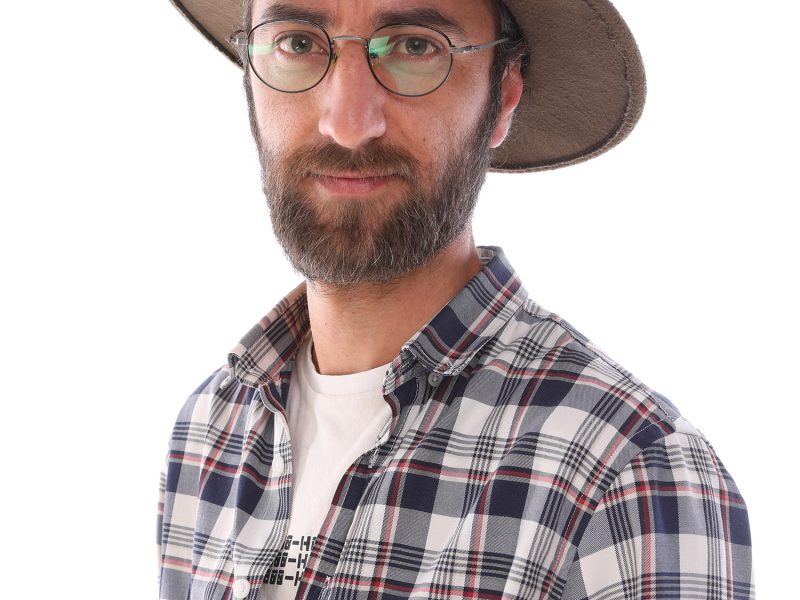Abu Omar’s Remarkable Journey from Turkey to the Netherlands
By Mohamad Eid
Amsterdam (Camp Hovegen) – This is the story of Abu Omar, a 22-year-old Syrian who embarked on an extraordinary journey from Turkey to the Netherlands, facing numerous challenges and hardships along the way. Abu Omar’s journey sheds light on the perilous paths and obstacles that countless asylum seekers navigate in their quest for refuge and safety.
Abu Omar is a 22-year-old young man who possesses ambition and intelligence, and is successful in his working life. At first, he had no plan to travel and leave Turkey, after establishing his own project in the Turkish city of Antalya, which is planting flowers and exporting them abroad.
From Prosperity to Hardship
Abu Omar mastered his work in growing flowers, and he opened his project in 2012, after he rented a small piece of land. After only one year, the project began producing, and Abu Omar’s production of roses gained fame in the region. Until it began to be exported to a number of merchants inside and outside Turkey. But the path of Abu Omar’s successful project did not last long, as he is one of the thousands of Syrians who left their jobs in Turkey after their situation became narrow as a result of the political pressures on the Syrian refugees, so they chose the path of illegal immigration to Europe.
The Everlasting Road
Abu Omar’s journey began alongside his younger brother Khaled (aged 14) in June 2020, departing from Istanbul towards the Greek lands. They were part of a group of 12 young friends, all aiming to reach the Netherlands.

Their route took them to the border between Turkey and Greece, along the Evros River. They initially relied on a GPS program to guide them as they entered Greek forests. Unfortunately, they lost internet connection for two days when they reached a valley near the Flair region. This difficult stretch also coincided with a shortage of food. Originally planning to trek across Greek lands for 8 days, their journey extended to 13 days due to unforeseen challenges. After finally leaving the forests behind, they continued on their path.
Trials and Camaraderie
Abu Omar explains, “We used to get our food from shops in the Greek villages, where most of the people were of Turkish origin. During the journey, my leg muscles got injured, causing a lot of pain. I struggled while walking, and one person in our group had knee pain. We helped him by walking alongside him or using a wooden plank to assist his movement. On the journey, we encountered another group of refugees. Among them was a strange story involving the death of a man over 55 years old from the Syrian city of Deir Ezzor. A member of that group, Abu Raed, shared details about the man’s journey. He mentioned that the man, whose last name was Abu Raed, began his journey in Turkey with his nephew and traveled with a group of 10 people.”

“During the journey, the deceased man’s nephew (Abu Raed) broke his leg, yet his group refused to halt their progress,” Abu Omar explains. “Following a day of walking through the mountains, two members of the group decided to go to a nearby village in search of food and to charge their mobile phones. In this situation, Abu Raed, who was elderly and unable to walk well, entrusted 150 euros to the two young men, thinking they would use it to bring him food and charge his phone. Unfortunately, they didn’t honor his trust. Instead, they returned after stealing both the money and the phone. At that moment, our group encountered Abu Raed on his own, in a secluded area, visibly distressed. Touched by his predicament, we felt compassion and offered him some food.”
Narrow Escapes
“After accompanying him for a day on our journey, as night fell, we decided to rest in a mountainous area surrounded by trees. The next morning, we were met with astonishment and shock when we discovered Abu Raed’s lifeless body sitting beside a tree. It was highly likely that he had suffered a heart attack. Swiftly, we proceeded to bury him in a nearby village before resuming our journey.”

Abu Omar continues recounting his experiences: “Upon reaching a loading point in Greek territory, a car arrived following an agreement with a human trader. This car was to take us to the Greek city of Thessaloniki. From there, we negotiated with another individual engaged in facilitating such journeys to guide us to Macedonia. Travelling on foot, the journey through the Macedonian lands took a day and a half. Unfortunately, the long walk caused the legs of some of the young men in our group to become strained and cracked. Upon reaching a vineyard, we rested for three hours, waiting for a taxi that had been arranged through a Russian smuggler. This taxi transported us to Serbia, where we found shelter in the United Nations’ Camp (Sunbar), situated close to the border between Hungary and Serbia.”
A Hopeful Conclusion
“After staying in the camp for three days, we decided to break through the wall between Serbia and Hungary. This wall was surrounded by barbed wire and had sensors to detect anyone touching it. Luckily, we managed to cross the wall safely and entered Hungary. We walked through forests for hours until we reached a loading point. A car took us from Hungary to Slovenia and then to the Czech Republic. Everything went well, and we continued to Germany by car. In Germany, we got on a train that took us to the Netherlands. Finally, on August 13, 2022, we arrived in the Netherlands. There, we gave ourselves up to the Dutch police, who sent us to the Ter Abel camp.”


